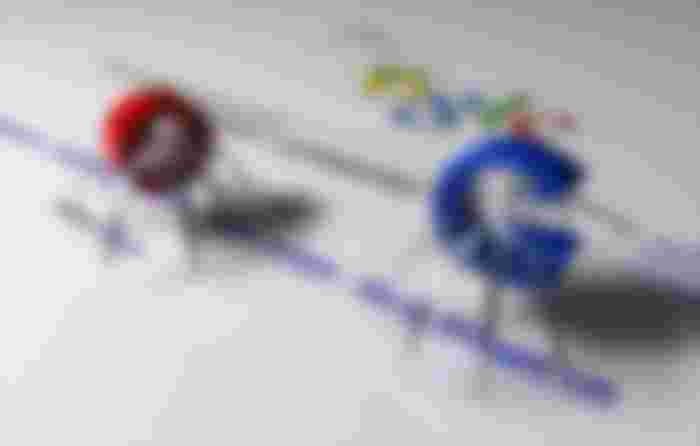Suppose, something is working with one, suddenly stuck. There is no one around to solve the problem. What is the way at such a time? Do a Google search. Or suppose, a new one is going to a relative's house, knows the address, but is hesitant about the road; He quickly took the mobile phone out of his pocket and googled it to find out which way to go.
We rush to Google to solve countless tasks or problems in our daily lives. I try to find any unknown information in the search engine called Google. Search engines like Google, Yahoo, Bing or Dak-Dak-Go. But what is the history of this search engine as a means of getting answers to our daily questions so easily? Who first came up with the idea of search engine in front of the whole world? How have search engines come to this position today since it has changed? Today's article is about the details of all this.

If we turn the page of the calendar and go back two decades, the state of the Internet will not be the same as it is today. Back then it was just a combination of links, collections. If someone needed any information he had to click on one link after another until he found the information he needed. Without entering the link, the outside file could not be known in any way on any subject. However, he has come a long way to come, many years have passed.
In 1945, Venezuela Bush, an engineer, published an article entitled "As we may think" in an attempt to persuade experts to open a virtual database. Because he realized that the way the amount of information is increasing in the world, we have to find some way to find it easily. Otherwise a lot of necessary information will be lost.
Well, I wonder who is the father of modern search technology? While the answer is not without controversy, many believe that Gerard Salton is the father of modern search technology. He created SMART or Salton’s Magic Automatic Retriever of Text which was well received by many at the time. Search engines are working based on some of the methods and algorithms mentioned in his book A Theory of Indexing. Contemporary Ted Nelson's Project Xanadu also caused a stir in the scientific community. Ted Nelson's experiments played a significant role in the creation of the WWW or the World Wide Web.

This is how the first search engine Archie came in 1990, which was created by Alan Emtez. Alan also introduced the indexing system in his search engines, which is now a way to add information to search engines. However, Archie could not search by keywords like today's search engine, the desired results could not be found without searching for specific titles. Within a couple of years, about 2.6 million files were submitted to Archie.
Two more search engines 'Veronica' and 'Jaghead' were created in the near future. The World Wide Web Wanderer was created in 1993, which was the first automated method (bot) that could automatically collect links and store them in a database. Due to some mechanical flaws it was lost before it became popular, but the idea of using a bot / robot system remains which is used by today's search engines. ALIWEB came up with a solution to this problem, but it also failed to gain popularity. Jumpstation, WWW Worm, RBSE are also added to the search engine world, but lost again very quickly.

In this way, Stanford University 7 the student created the new search engine 'Excite', which analyzes the words used in the contents and brings the contents into a ranking system. Jerry Young and David Philo, two students from the same university, created Sarah Jagano Yahoo, which initially only collected sports information. Gradually, they made Yahoo stand out as the ideal search engine. Initially, Yahoo was called 'Jerry and David's Guide to the World Wide Web'. They needed money to serve well. And it is embarrassing to read about collecting that money.
In today's world, Google, Yahoo, Bing, Baiju make a lot of money, but at that time people thought it was a lot of public service, whether it is fair or unfair to make money in return was one of the topics of debate at that time. In the midst of hundreds of controversies, Yahoo raised funds in exchange for advertising. At this point in Yahoo, Excite solves their old problems and appears in front of people in a new form, the bone-chilling battle continues. In the meantime, BackRub came in 1996, which has become today's Google.

It was created in 1996 by Larry Page and Sergey Brin, both Stanford University students, and was renamed Google in 1998. Gradually GoogleTop goes to Yahoo and Excite.
Google is currently the most used and most effective search engine. Google gives search rankings to every content indexed in the search engine by more than 200 factors, whereas Google calculates every click made by the user on each link as a single vote, which again affects the ranking in the next search. Google's algorithm changes more than five hundred times a year. Today we can collect almost any information so easily because we have Google, and today we got Google because the previous search engines of Google came.
Then came many more search engines. Microsoft appeared with Bing in 2009. Interestingly, Bing is associated with Microsoft as well as Yahoo. Google collects its user information. For those who thought it was a problem, Dak Dak Go appeared before Bing on September 25, 2008. China's Baiju and Russia's Yandex but Yahoo, Google's time has come close. Yandex in 1997 and Baiju in 2000. Although they do not provide worldwide service, they are not interested in providing. Google holds its own.
Bangladesh also has its own search engine, Pipilika, which officially launched on 13 April 2013.
Thanks to everyone for reading this article




Wow Nice one